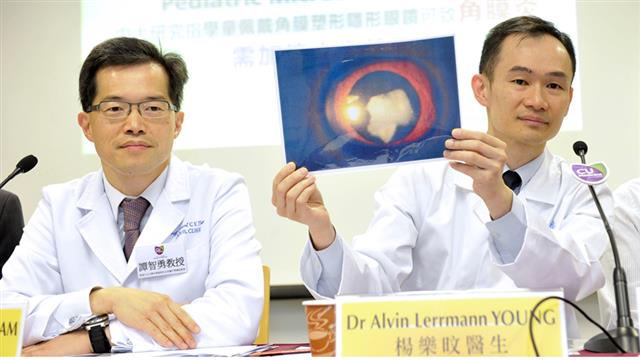The Department of Ophthalmology and Visual Sciences has investigated cases in the past 10 years in which patients aged 18 or below were diagnosed with microbial keratitis, a corneal disease that can result in blindness. Results indicated that about 40% of the cases were directly related to the use of Orthokeratology (Ortho-K) lens — corneal reshaping lenses that are used to control myopia — reflecting the potential risk of using such lenses. Dr. Alvin L. Young (right), clinical associate professor (honorary) in the department, pointed out that wearing Ortho-K lens might cause abrasions on the corneal epithelial layer, thus weakening the cornea. 'Bacterial infection in the area of abrasion will occur if proper cleaning and hygiene procedures are not adhered to when using Ortho-K lens.' Delayed treatment will lead to irreversible corneal scarring, endophthalmitis, or corneal perforation, resulting in devastating effects in the long run.
The research team also analysed 23 cases with corneal infection caused by the use of Ortho-K lens. It was found that the patients were at a mean age of 15 and required 15 days of hospitalization on average. All patients suffered from permanent corneal scar leading to irreversible visual impairment.
Prof. Clement Tham (left), S.H. Ho Professor of Ophthalmology and Visual Sciences, said, 'Parents should consult an ophthalmologist on the treatment options for controlling myopia in their children, and should have a clear understanding of the efficacy and safety of each of these options before making a choice.'
For details, please click here.


